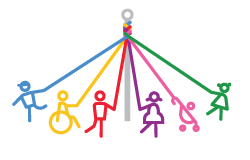Further education and employment options
On this page you will find information and practical advice about different school, college and setting options for young people with SEND.
We hope that you find this page helpful. If you have any questions, you can contact us and we will try to answer them for you.
More information, advice and support (IAS)
Leeds SENDIASS are not responsible for the content of sites or services offered by third parties.
- Leeds City Council - Leeds Local Offer website.
- IPSEA-the right to a mainstream education advice.
- IPSEA - Year 9 and beyond advice.
- Preparing for adulthood (Pfa)- website
- MENCAP - transition advice.
- Start in Leeds- website.
- AET - starting uni guide.
- AET - choosing a school guide.
You can find more resources on our useful SEND links and tools page.
